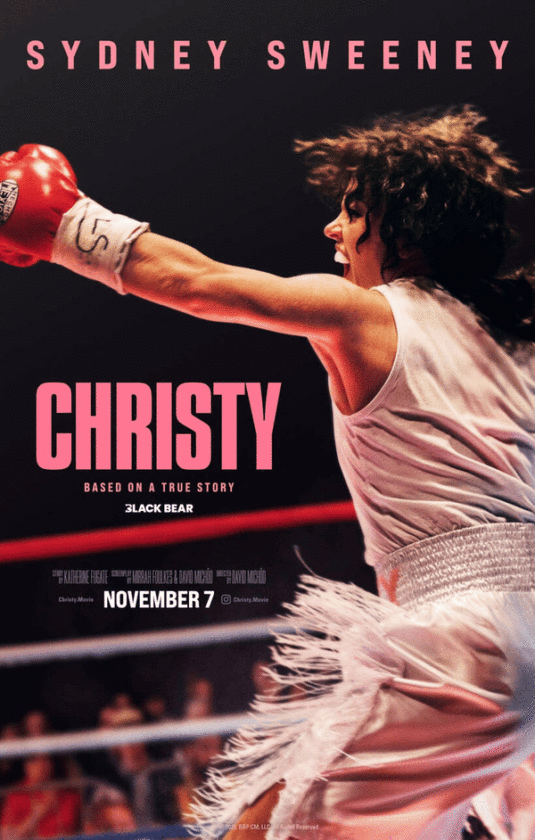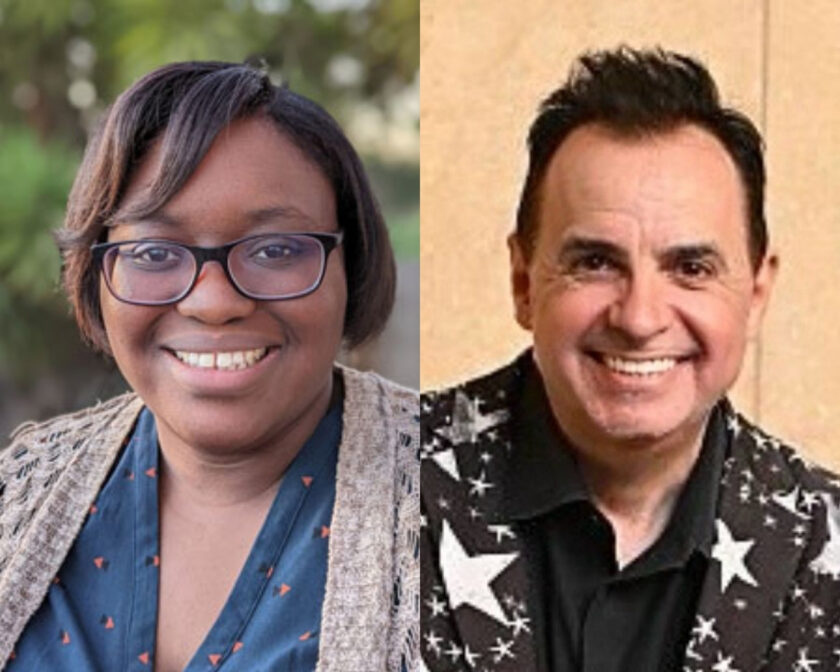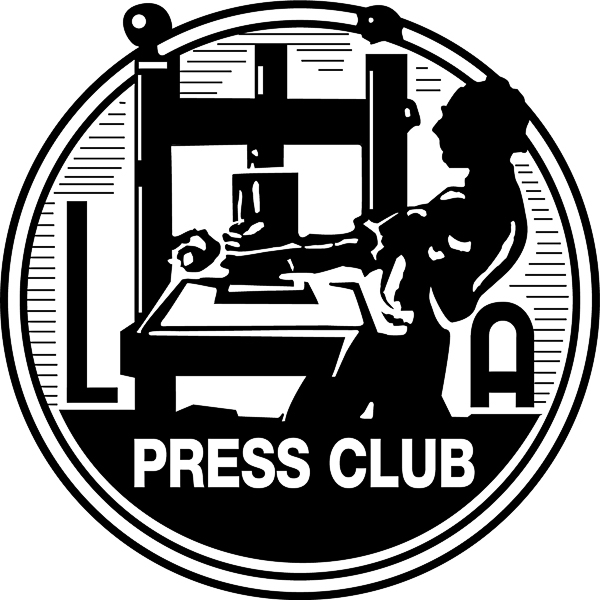Tuesday, December 16, 2003 5:50 PM
BY JORDI ORTEGA
At this moment, probably one of his last taped shows is re-run- ning. During 16 years hosting 3,000 public affairs shows, Bill Rosendahl, 58, rose to become one of the most respected and qualified voices in journalism in Los Angeles. Just when I was starting to be a loyal watcher of his debates on Adelphia, he retired.
I’m afraid many people of my generation have just missed a great intellectual train. But the “teacher of the waves” still has plenty of “missionary” duty to carry out in Southern California.
Among large pic- tures of the wilderness on his office walls are dozens of plaques and trophies attesting to the fact that TV hosting was a vocation for him, just as was political campaign advisor and Army psychoanalyst— two other alter egos he has lived.
“I was dealing with
the G.I. who came from battle,” says Rosendahl. “I learned a lot about the horrors of war and the pain that inflicts on that person. The killings that they’ve done, their friends that have died. … I found these young men unburdening themselves with me. And so you become a good listener.”

His talk show was a
lesson in classic cama-
raderie. The way he
embraced all points of
view was pure teaching of morality: “Be it Robert Dornan, who on the extreme right would have boiled me alive with his homophobic views,” says the openly gay Rosendahl, or some of the “extreme- left friends who have talked about issues that caused a lot of prob- lems … no one has all the answers. But when you put a group together, and everybody feels that they are respected and their dig- nity is appreciated, people will put their best foot forward.”
Rosendahl, former president of the Press Club, put together lava and ocean, and tried to grab the resulting incandescent mass. “The other day I had six panelists discussing the Middle East. Three were very, very pro-Palestinian. And three were very, very pro- Israeli. … The big challenge for me is to try to calm down the heat and find the light.”
During his TV shows, he was a “facilitator.” But this is his inter- view, and Rosendahl unburdens himself.
“How many people have asked ‘why did Osama Bin Laden have the ability to attract young men to a cause’? Because Saudi Arabia is a repressive dictatorship. But we didn’t go to Saudi Arabia, because we love their oil.” “When I heard our president say we want Iraq to be like the democracy in the Philippines, I just about threw up. I’ve been to the Philippines. There are eight- hundred families that run that country; most of those people live in squalor.”
“Now there’s War on Terrorism. ‘This is a war we will fight for many years.’ That’s bullshit. I just hope more intelligent, lightened, thoughtful, sensitive people get into positions of power.”
He worries that most journalists have little power. “It’s the mar- keters, and the profiteers within the corporate world that are con- trolling it, and they are the ones that make the need of the Press Club that much more important.”
“When I was co-hosting with Patt Morrison the Press Club debate, Arnold Schwarzeneg-
ger was across the street in Larry
King’s studio. In the old days the journalists would have been waiting
for him there saying, ‘How come you can’t
be in that debate?” Now, Rosendahl
urges the networks to put more chairs in the
televised presidential debates. “I’m outraged; public service television
used to be a responsi- bility of all the broad-
casters. Of course they’re going to have the
Democrat. Of course they’re going to have the
Republican. But they should have had Ralph
Nader at the table in 2000, so peo- ple could have understood the Green Party.”
Rosendahl feels the two-party system is broken. “You can go to Washington now and if you are a drug company guy, or a big pharmaceutical company, or a new big insurance company, you can get in. … But boy, if you represent the people, forget it!”
Outside unfolds one of the last Santa Monica sunsets that he will see from his Adelphia office. A black and white portrait of Robert Kennedy has taken on a mature-peach color, like room itself. Rosendahl worked for Kennedy when he was assassinated at the Ambassador Hotel in Los Angeles.
“I feel a responsibility that the world I live in, everyday, is my world. And my issues are all of our issues. You can’t separate yourself from the world you live in, and live in some kind of an isolated way,” he says.
“Live in the moment. Because the moment is all we have. Now I’m going to run for political office, and maybe I can be somebody that can meet the community in such a way that we can have a better L.A.”
Who is going to fill his void in television? “I don’t know. I just hope that others will.” He passes the torch to a new generation: “God bless you, and bye, bye.”



